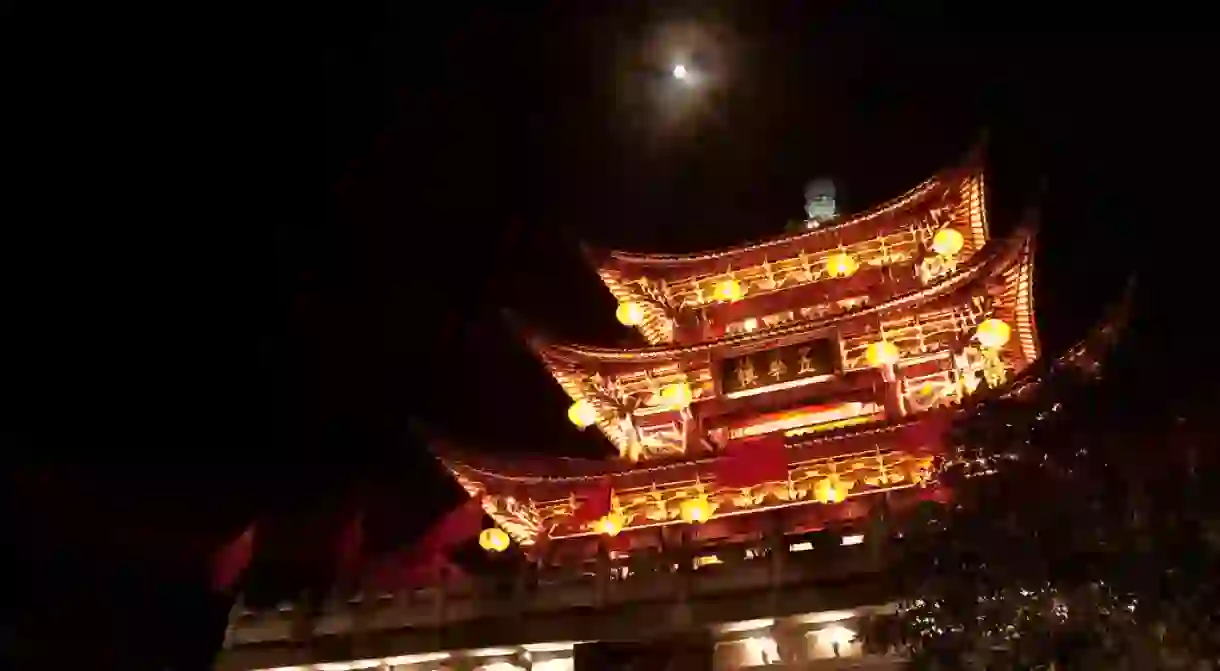8 Fascinating Ethnic Minority Festivals in China You had No Idea even Existed

You’ve heard of Chinese New Year, but have you ever heard of Butter Lamp Festival or Torch Festival? These eight ethnic minority festivals highlight the diversity of China’s celebratory traditions, and participating in any of them will add a unique and unforgettable dimension to any visit to China.
Dao Gan Jie (Lisu)
Where: Tengchong and Longling counties, Yunnan
Dao Gan festival is held every year by the Lisu people to commemorate the official, Wang Ji, who, in the Ming dynasty, was a great hero to the Lisu. Although ethnically Han himself, Wang Ji helped to train young Lisu men to be skilled fighters and helped the Lisu defend their lands from invaders. Wang Ji lived among the Lisu for many years and taught them new agricultural techniques as well as military skills. Unfortunately, Wang Ji was poisoned after being framed for the crime of treason, and the Lisu commemorate his death with this festival, which is much more exciting than the somber history suggests.
MuNaoZongGe Festival (Jingpo)
When: 15th day of the first month of the lunar new year
Where: Dehong prefecture, Yunnan province
MuNao ZongGe festivities are centered around large and intricate group dances involving thousands of people. Shamans lead various groups into ceremonial standoffs between leaders of different Jingpo groups. Each step is important, and only the most skillful dancers will be chosen to participate. During this time Jingpo people come from all over Yunnan to the festival grounds. The best place to see this festival in action is JieGao, just outside of the city of Ruili, in Dehong prefecture, Yunnan province.

Torch Festival (Yi)
Where: Chuxiong, Yunnan, Daliangshan, Sichuan
Water Splashing Festival (Dai)
Where: Xishuangbanna
Third Month Street Festival (Bai)
When: The fifteenth day of the third month of Lunar New Year
Where: Dali
The Third Month festival is actually celebrated by several different ethnic groups, but the festival of the Bai ethnicity in Dali is by far the most well known. A large outdoor market is erected at the foot of the Cangshan Mountain selling just about everything imaginable. Merchants come from all over China to take part, and there is food (of course), handicrafts, tea, musical instruments, and even livestock. This festival is important to the local economy and much anticipated by locals and visitors alike. The festival has grown in popularity over the years and festival day can be quite crowded, but the Third Month Street Festival is nonetheless an unforgettable experience, and one could quite literally spend a whole day wandering among the various stalls and still probably not cover all of them!

Nadaam (Mongolian)
Where: Inner Mongolia
Butter Lamp (Tibetan)
When: 15th day of the 1st month of the Tibetan calendar, usually February/March
Where: Tibet, Qinghai, Western Sichuan, Northwestern Yunnan
The Butter Lamp festival is the final festival in a larger Tibetan holiday called Monlam, which celebrates the miracles of the Buddha, and also the culmination of the Tibetan holiday season that begins with Losar, the Tibetan New Year. Of all of these festivals, Butter Lamp Festival is perhaps offers the most interesting. Worshippers light thousands of small butter oil lamps which symbolize the light of Buddhism and its victory over ignorance. As well as lighting lamps, Tibetan Buddhists also create intricate butter carvings of the Buddha, and of flowers, animals, and other Buddhist symbols.

Lusheng Festival (Miao)
Where: Guizhou, Kaili













